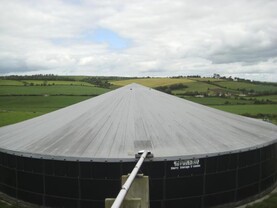It is commercial dairy, tillage and drystock farmers who will lose out under the CAP agreement emerging from Brussels, the Irish Co-operative Organisation Society (ICOS) has warned.
While ICOS welcomed the progress in agreeing a final deal, it expressed disappointment that a minimum 85% convergence rate and a 10% redistributive payment were included.
ICOS president Jerry Long said the significant reallocation of CAP funding disadvantaged productive farms, many of which had made extensive investments based on current payments.
Failings
The reforms failed to take account of the cost-intensive nature of commercial dairy, tillage and drystock farms which included rising regulatory compliance costs, Long said.
“These are the farmers who are driving our export industry and who are reinvesting in jobs and infrastructure in our rural communities,” he said.
“The CAP payments made to those farmers have a multiplier effect in their community and this decision on reallocation will have knock-on economic implications on our rural economies."
ICMSA
Irish Creamery and Milk Suppliers Association (ICMSA) president Pat McCormack said the reform had the potential to be a disaster for Irish farmers and the rural economy.
McCormack said the model of convergence was demonstrably flawed.
“As we’ve said before, it’s not the motive of this model of convergence that we object to; it’s the outcome of this model of convergence, where the weight of payment has switched from farming to landowning," McCormack said.
“That’s fundamentally unfair and it’s deeply unpopular with the active farmers who are the engine of the sector and the sector’s exports."
Both the ICMSA and ICOS raised concerns about the final compromise reached on eco schemes and redistributive payments.
One quarter of the direct payments will be used to fund eco schemes, while member states will also be required to introduce a 10% redistributive payment.
Long said clarity was now needed as to whether the implementation of 85% convergence covered requirement for a 10% redistributive payment or whether further measures will be required.
McCormack said all farmers faced a 25% cut to fund eco schemes, while Long flagged the lack of flexibility around unspent funds.






 This is a subscriber-only article
This is a subscriber-only article











SHARING OPTIONS: